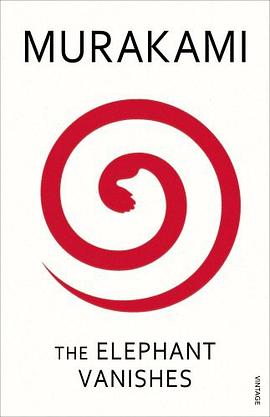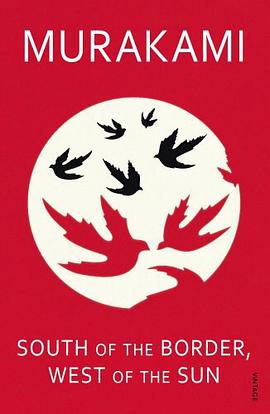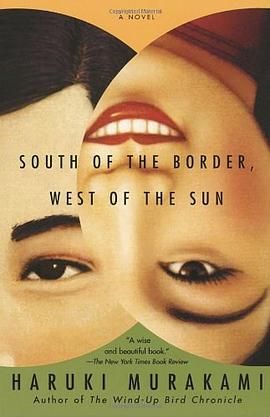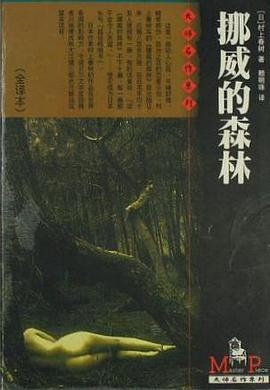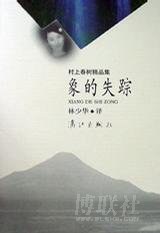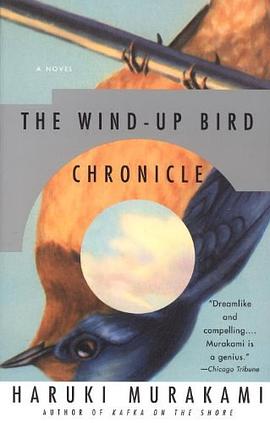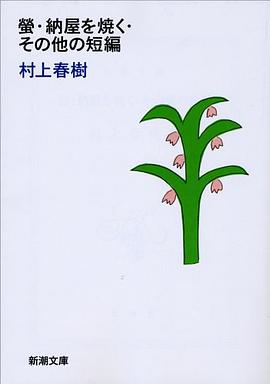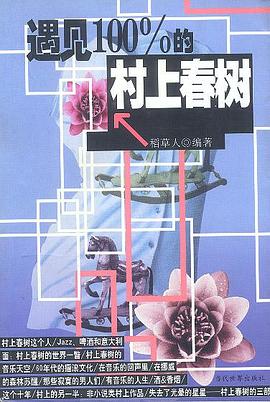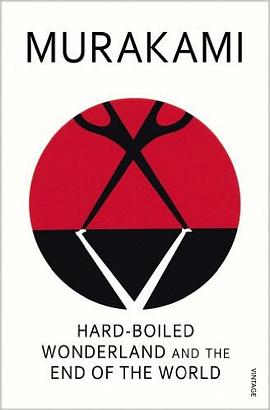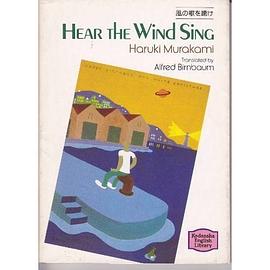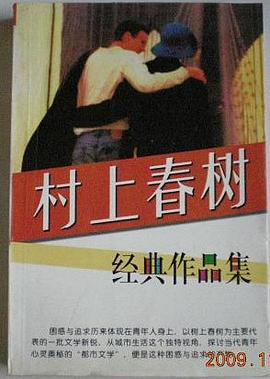Underground pdf epub mobi txt 電子書 下載 2025
圖書介紹
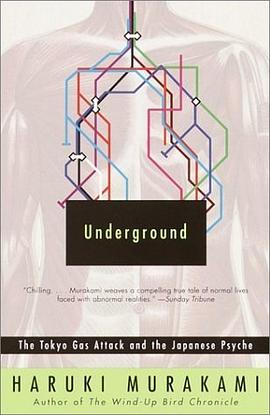
發表於2025-05-23
Underground epub 下載 mobi 下載 pdf 下載 txt 電子書 下載 2025
相關圖書
Underground epub 下載 mobi 下載 pdf 下載 txt 電子書 下載 2025
Underground pdf epub mobi txt 電子書 下載
具體描述
村上春樹(1949-),日本著名作傢。京都府人。畢業於早稻田大學文學部。1979年以處女作《且聽風吟》獲群像信任文學奬。主要著作有《挪威的森林》、《世界盡頭與冷酷仙境》、《舞!舞!舞》、《奇鳥行狀錄》、《海邊的卡夫卡》、《天黑以後》等。作品被譯介至三十多個國傢和地區,在世界各地深具影響。
在綫閱讀本書
Book Description
From Haruki Murakami, internationally acclaimed author of The Wind-Up Bird Chronicle and Norwegian Wood, a work of literary journalism that is as fascinating as it is necessary, as provocative as it is profound.
In March of 1995, agents of a Japanese religious cult attacked the Tokyo subway system with sarin, a gas twenty-six times as deadly as cyanide. Attempting to discover why, Murakami conducted hundreds of interviews with the people involved, from the survivors to the perpetrators to the relatives of those who died, and Underground is their story in their own voices. Concerned with the fundamental issues that led to the attack as well as these personal accounts, Underground is a document of what happened in Tokyo as well as a warning of what could happen anywhere. This is an enthralling and unique work of nonfiction that is timely and vital and as wonderfully executed as Murakami’s brilliant novels.
From Publishers Weekly
On March 20, 1995, followers of the religious cult Aum Shinrikyo unleashed lethal sarin gas into cars of the Tokyo subway system. Many died, many more were injured. This is acclaimed Japanese novelist Murakami's (The Wind-Up Bird Chronicle, etc.) nonfiction account of this episode. It is riveting. What he mostly does here, however, is listen to and record, in separate sections, the words of both victims, people who "just happened to be gassed on the way to work," and attackers. The victims are ordinary people bankers, businessmen, office workers, subway workers who reflect upon what happened to them, how they reacted at the time and how they have lived since. Some continue to suffer great physical disabilities, nearly all still suffer great psychic trauma. There is a Rashomon-like quality to some of the tales, as victims recount the same episodes in slightly different variations. Cumulatively, their tales fascinate, as small details weave together to create a complex narrative. The attackers are of less interest, for what they say is often similar, and most remain, or at least do not regret having been, members of Aum. As with the work of Studs Terkel, which Murakami acknowledges is a model for this present work, the author's voice, outside of a few prefatory comments, is seldom heard. He offers no grand explanation, no existential answer to what happened, and the book is better for it. This is, then, a compelling tale of how capriciously and easily tragedy can destroy the ordinary, and how we try to make sense of it all. (May 1)Forecast: Publication coincides with the release of a new novel by Murakami (Sputnik Sweetheart, Forecasts, Mar. 19), and several national magazines, including Newsweek and GQ, will be featuring this fine writer. This attention should help Murakami's growing literary reputation.
From Library Journal
The deadly Tokyo subway poison gas attack, perpetrated by members of the Aum Shinrikyo cult on March 20, 1995, was the fulfillment of every urban straphanger's nightmare. Through interviews with several dozen survivors and former members of Aum, novelist Murakami (The Wind-Up Bird Chronicle) presents an utterly compelling work of reportage that lays bare the soul of contemporary Japan in all its contradictions. The sarin attack exposed Tokyo authorities' total lack of preparation to cope with such fiendish urban terrorism. More interesting, however, is the variety of reactions among the survivors, a cross-section of Japanese citizens. Their individual voices remind us of the great diversity within what is too often viewed from afar as a homogeneous society. What binds most of them is their curious lack of anger at Aum. Chilling, too, is the realization that so many Aum members were intelligent, well-educated persons who tried to fill voids in their lives by following Shoko Asahara, a mad guru who promised salvation through total subordination to his will. For all public and academic libraries. Steven I. Levine, Univ. of Montana, Missoula
From Booklist
After living abroad for eight years, novelist Murakami returned to Japan intent on gaining a deeper understanding of his homeland, a mission that took on an unexpected urgency in the aftermath of the Tokyo poison-gas attack in March 1995. Inspired by a letter to the editor from a woman whose husband survived the subway attack but suffered terrible aftereffects, Murakami set out to interview as many survivors as he could find who were capable of overcoming the Japanese reluctance to complain or criticize. With great sensitivity, insight, and respect, Murakami coaxed a remarkable group of people into describing their harrowing experiences aboard the five morning rush-hour trains on which members of the Aum Shinrikyo cult released deadly sarin gas. Unlike a journalist, Murakami doesn't force these searing narratives into tidy equations of cause and effect, good and evil, but rather allows contradictions and ambiguity to stand, thus presenting unadorned the shocking truth of the diabolical and brutal manner in which ordinary lives were derailed or destroyed. The most haunting aspect of these accounts is the eerie passivity of the passengers both during and after the assault, a phenomena echoed in Murakami's courageous interviews with Aum members, frank conversations that reveal the depth of these individuals' spiritual longings and the horror of their betrayal at the hands of their corrupt and insane leader. Shaped by his fascination with alternative worlds and humanity's capacity for both compassion and abomination, Murakami's masterful and empathic chronicle vividly articulates the lessons that should be learned from this tragic foray into chaos.
Donna Seaman
Book Dimension :
length: (cm)20.3 width:(cm)13.3
Underground pdf epub mobi txt 電子書 下載
用戶評價
##前半部是對幸存者的采訪以及村上解釋為什麼要寫這本書,後半部分是對教眾的采訪,在麵對一個個具體的人時,之前的一些想法多少有些改變。村上認為阪神地震和東京地鐵沙林事件是日本戰後最大的災難,雖然前者是自然因素後者是人為,但無疑都給普通人造成瞭巨大的心理創傷。所以希望通過自己的寫作去做些什麼,至少在應急政策上能有所改善。也是從寫阪神地震的after the quake對村上改觀,接著再看這本書,他確實是想以小說傢的身份去介入社會問題。準備再重讀下他的小說。
評分 評分 評分覺得我在causes of war 這樣的課上必須要讀村上春樹也是醉瞭......教授說讓你們學習一下如何在寫research log時寫齣鮮活的“人”....於是在總想翹課的星期二我讀著讀著,心裡像吞瞭好大一口芥末。
評分##非常棒的紀實小說
評分##在這個信息過度的年代裏,我們往往會被媒介的信息誤導瞭方嚮。我們的視綫在不知不覺中被媒體引導瞭,這是我們的悲哀,也是社會的悲哀。 在一場事故中,我們往往關心的是:死瞭多少人?有沒有貪汙腐敗的存在?是不是會牽扯到敏感人物?敏感話題?有幾個人是會想到事...
評分##非常棒的紀實小說
評分 評分##本書第一部分是對幸存者的采訪,故事雖然令人震撼但都大同小異。第二部分對Aum Cult成員的采訪則有趣得多,這些人都是極為聰明又喜愛思考的人,他們在這個世界中格格不入,對著人生和社會有著獨特的看法。讀的時候既是有些獵奇地想看“他們為什麼會那麼想”,又驚嘆於他們對人生、哲學和宗教的看法。最令人驚奇的是,Aum的初始教義完全建立在佛教中,而成員們都在人生某個時刻想過要“retire from the world”。佛教的“無我”,放棄attachments,和“萬念皆苦”恐怕也是我現在對其感到疏離的最大原因,對我來說,有什麼比愛和幸福的感覺更重要的東西呢?也許我就跟Leon一般,終其一生不過是在找尋attachments,可以放下我的根。大概哲學和宗教也如同絕世武功,一不小心就容易走火入魔。
Underground pdf epub mobi txt 電子書 下載
分享鏈接


相關圖書
-
 The Elephant Vanishes pdf epub mobi txt 電子書 下載
The Elephant Vanishes pdf epub mobi txt 電子書 下載 -
 Norwegian Wood pdf epub mobi txt 電子書 下載
Norwegian Wood pdf epub mobi txt 電子書 下載 -
 South of the Border, West of the Sun pdf epub mobi txt 電子書 下載
South of the Border, West of the Sun pdf epub mobi txt 電子書 下載 -
 South of the Border, West of the Sun pdf epub mobi txt 電子書 下載
South of the Border, West of the Sun pdf epub mobi txt 電子書 下載 -
 挪威的森林 pdf epub mobi txt 電子書 下載
挪威的森林 pdf epub mobi txt 電子書 下載 -
 象的失蹤 pdf epub mobi txt 電子書 下載
象的失蹤 pdf epub mobi txt 電子書 下載 -
 The Wind-Up Bird Chronicle pdf epub mobi txt 電子書 下載
The Wind-Up Bird Chronicle pdf epub mobi txt 電子書 下載 -
 奇鳥行狀錄 pdf epub mobi txt 電子書 下載
奇鳥行狀錄 pdf epub mobi txt 電子書 下載 -
 國境の南、太陽の西 pdf epub mobi txt 電子書 下載
國境の南、太陽の西 pdf epub mobi txt 電子書 下載 -
 The Elephant Vanishes pdf epub mobi txt 電子書 下載
The Elephant Vanishes pdf epub mobi txt 電子書 下載 -
 Hard-Boiled Wonderland and the End of the World pdf epub mobi txt 電子書 下載
Hard-Boiled Wonderland and the End of the World pdf epub mobi txt 電子書 下載 -
 螢・納屋を焼く・その他の短編 pdf epub mobi txt 電子書 下載
螢・納屋を焼く・その他の短編 pdf epub mobi txt 電子書 下載 -
 ノルウェイの森(上) pdf epub mobi txt 電子書 下載
ノルウェイの森(上) pdf epub mobi txt 電子書 下載 -
 好風長吟 pdf epub mobi txt 電子書 下載
好風長吟 pdf epub mobi txt 電子書 下載 -
 天黑以後 pdf epub mobi txt 電子書 下載
天黑以後 pdf epub mobi txt 電子書 下載 -
 遇見100%的村上春樹 pdf epub mobi txt 電子書 下載
遇見100%的村上春樹 pdf epub mobi txt 電子書 下載 -
 Hard-Boiled Wonderland and the End of the World pdf epub mobi txt 電子書 下載
Hard-Boiled Wonderland and the End of the World pdf epub mobi txt 電子書 下載 -
 開往中國的慢船 pdf epub mobi txt 電子書 下載
開往中國的慢船 pdf epub mobi txt 電子書 下載 -
 風の歌を聴け pdf epub mobi txt 電子書 下載
風の歌を聴け pdf epub mobi txt 電子書 下載 -
 村上春樹經典作品集 pdf epub mobi txt 電子書 下載
村上春樹經典作品集 pdf epub mobi txt 電子書 下載


